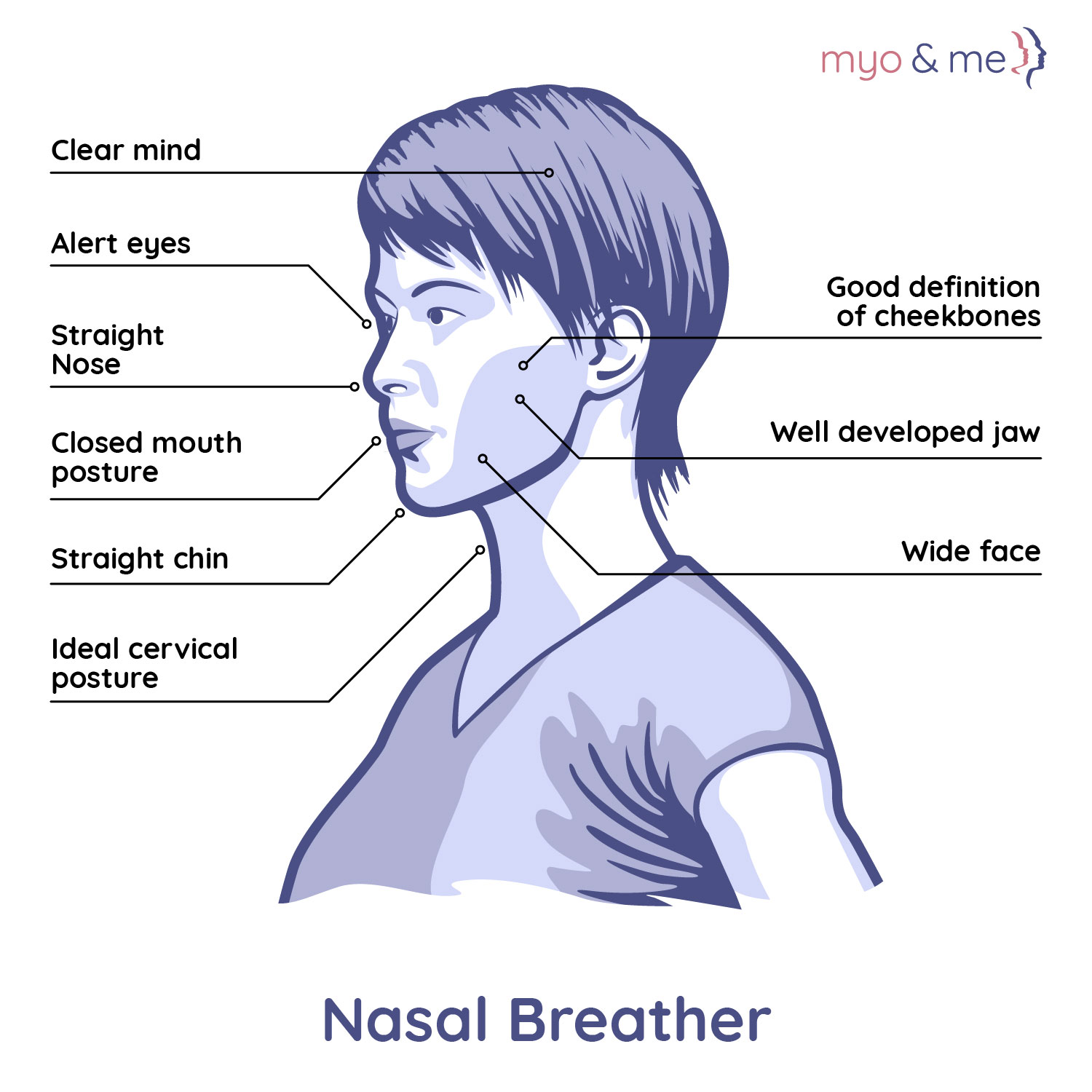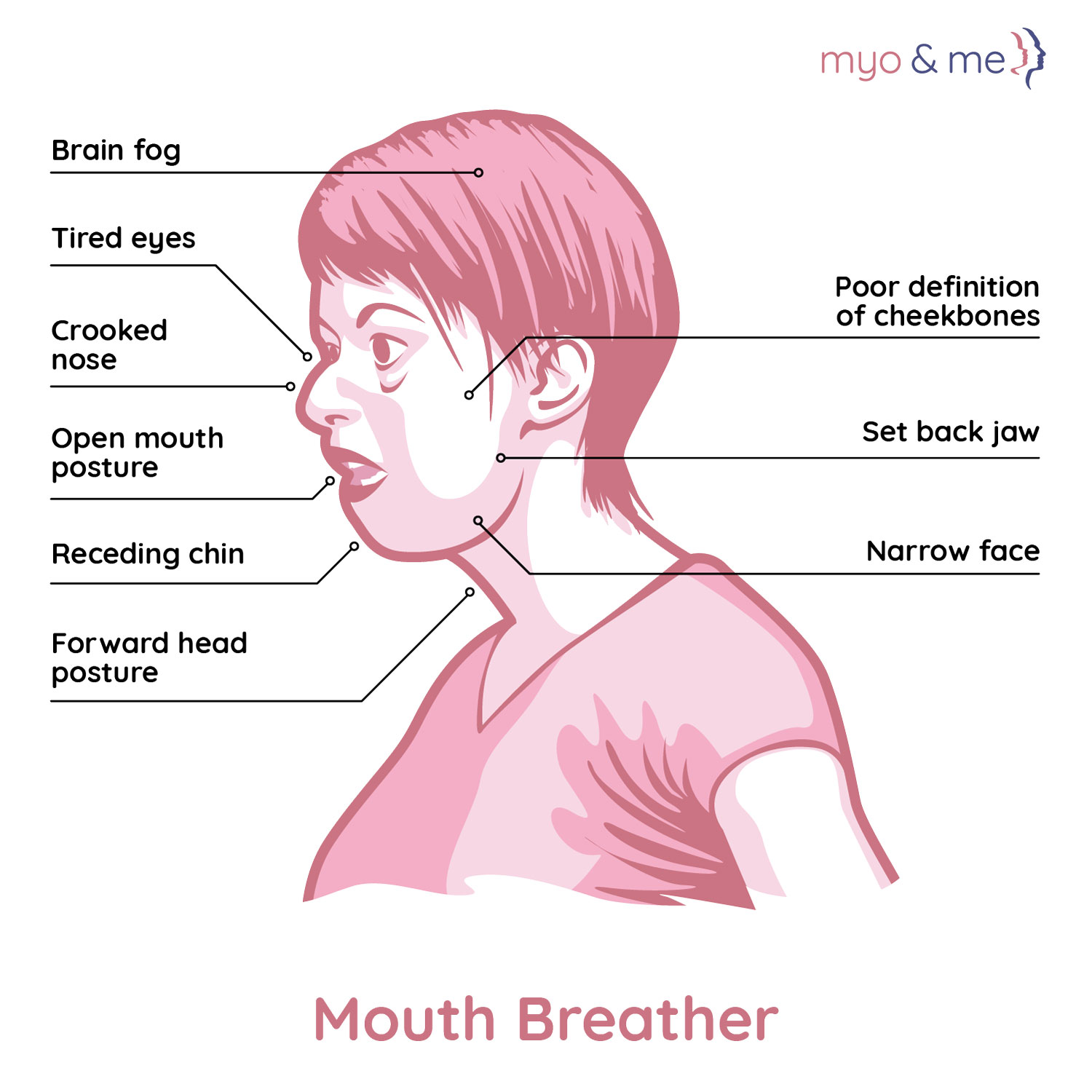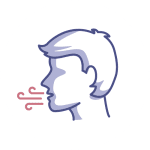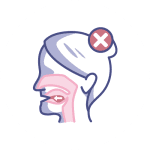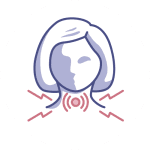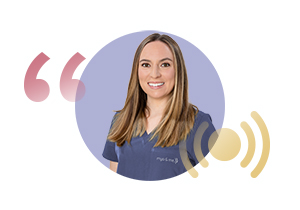
“OMDs might start as something small and seemingly innocuous but, over time, can lead to habits being formed that result in incorrect muscle function.”
– Jennifer
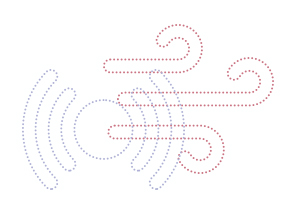
The most common reason why your orofacial muscles might not be working in an optimal way is due to what we call Orofacial Myofunctional Disorders (OMDs) – disorders that predominantly affect your head and neck muscles in a negative way.
Consequences of Untreated Orofacial Myofunctional Disorders on Everyday Functions
Orofacial Myofunctional Disorders might start as something small and seemingly innocuous but, over time, can lead to habits being formed that result in incorrect muscle function. This can then affect everyday functions like breathing, speaking, oral hygiene, eating, swallowing and, in the case of babies and infants, breastfeeding and/or bottle feeding. Orofacial Myofunctional Disorders can also affect how the teeth bite together, and accentuate any existing dental or speech-related disorders.
Common Causes and Factors Contributing to Orofacial Myofunctional Disorders
- Nasal congestion (due to allergies, rhinitis etc.) that leads to mouth breathing
- ‘Everyday’ oral habits such as thumb sucking, nail biting etc.
- Improper chewing/swallowing habits
- Long term use of a dummy, bottles or sippy cups
- Over (or under) active oral muscles
- Enlarged tonsils/adenoids
- Oral restrictions, including lip and/or tongue ties
- Underlying genetics
- Pre-term or traumatic birth
- Diet, in particular regular consumption of pureed or processed foods
Prevention and Treatment of Orofacial Myofunctional Disorders
We believe that form follows function – the muscles in the head and neck, including those of the tongue, shape the structure of the face and jaws. This in turn influences how you look, how the facial bones grow and develop, how you breathe and how your muscles work.
It’s important that we aim to prevent, treat and resolve symptoms of Orofacial Myofunctional Disorders in a timely manner to minimise their impact on your body. The following pages provide further detail on some of the more common OMDs we see and treat. If you recognise any of them in yourself, or a loved one, Myofunctional Therapy may be for you.
